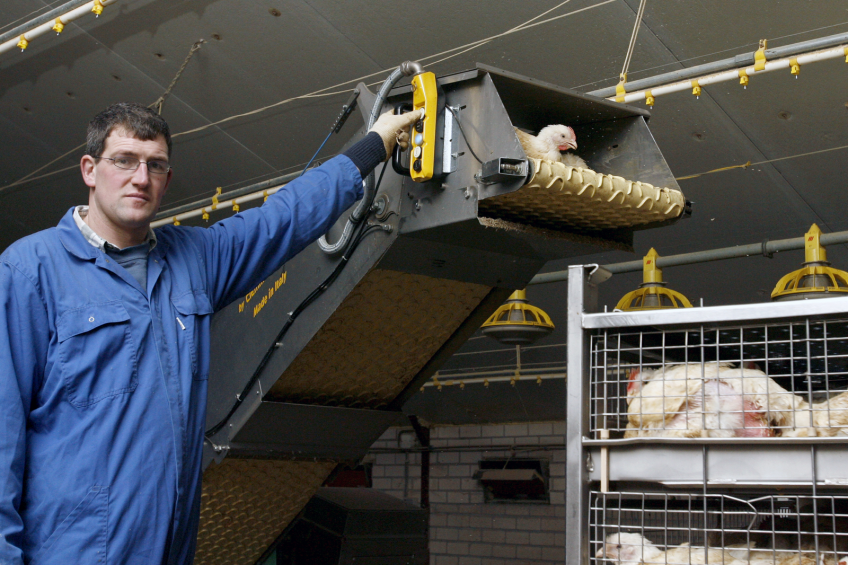Chicken productivity sensitive to light and sound

Studies show, that just as in humans, major abrupt changes to the day/night cycle of the chickens, such as waking up the chickens at night with loud noises will lead to stressed and anxious chickens.
Chickens like all vertebrates are governed by a circadian rhythm that is governed by the natural light/dark cycle of day and night. As such chickens mostly rest and are inactive at night especially when it is dark. Most of their feeding and activity is during the day light hours, even though they also rest during the day.
Loud noise lowers egg production
In addition, studies have shown that loud noises such as found near airports, rail road tracks or loud hydraulic or pneumatic equipment and machinery close to the chickens leads to lower egg production, stunted growth, higher blood pressure, stress and fatigue in the chickens. A study has shown that loud noise simulating noisy ventilation fans and operational machines found at slaughterhouses led to increased plasma corticosteroids, cholesterol and total protein. Other studies show that noise levels pass the 85 dB level leads to a decreased feed intake of between 15-25%. Of course lower feed intake stunts chicken growth; something the poultry farmer or processor does not want. It is clear there are many reasons why control of noise pollution near the chickens is beneficial.
Tips and tricks
- Some tips and advice to reduce the noise level to an acceptable and healthier level leading to healthier chickens both psychologically and physically:
- First identify the sources of noise pollution equipment. Use a sound measuring tool if necessary.
- Erect sound barrier secondary glazing in windows.
- Ideally establish your chicken farm in a quiet area, away from airports and industrial areas and rail yards.
- Maintain your ventilation fans and feeding machines making sure they are not producing excess noise.
- Try to buy machines that produce the least noise possible.
- Avoid repairs and renovations with noisy equipment especially during dark periods
- Muffle noisy equipment
- Investigate ‘Active noise control’- a noise cancellation anti-noise system that produces sound waves of the same amplitude as the noise pollution but in opposite polarity causing a cancelling of the noise pollution.
- Train employees and family members and make them aware of the adverse effects noise has on poultry.
Common sense
Reducing exposure noise is all about common sense and respect. We need to respect the fact that chickens are living beings that need many of the same things that we need including a good night’s sleep and some peace and quiet during the day. Reducing noise itself is about common sense too. It’s about identifying the sources of noise pollution equipment and muffling and shielding poultry from the noise. Last but not least it is about educating employees to respect the chickens ‘sleeping hours’. It will help to keep your operation profitable.









